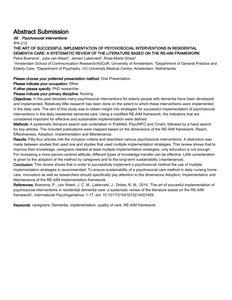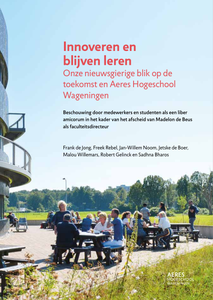Despite continuous efforts in various economies, amongst others in South-East Asia, the full potential of social entrepreneurship (SE) is difficult to realize (STEPup project comparative study findings). Challenges that need to be addressed include the lack of skilled employees, business understanding among founders, access to funding and infrastructure and a lack of social impact measurement. Higher education institutions (HEI) are often challenged with limited engagement, also in terms of student support of early entrepreneurial activity. This disbalance has also been observed in Thailand and Myanmar, with the Erasmus+ funded project STEPup (2020-2023) seeing an opportunity to create and strengthen innovative social entrepreneurship practices for disruptive business settings in the two participating countries. Research based on the review of scientific articles, the conduct of focus groups (n= 42 from 38 different external stakeholder organizations) and numerous interviews and creative sessions with stakeholders of the social entrepreneurship domain also revealed the necessity to act in a self-organizing and organic SE support system. This paper aims to present recommendations and strategic guidelines to increase access and opportunity for existing social enterprises and social entrepreneurs who are planning to create and sustain an SE ecosystem through the framework, support, expertise and structure of existing higher education institutions. In addition, Higher Education Institutions in Myanmar and Thailand would serve as a good practice case on how to design and develop resource hubs for social enterprise practitioners and engage stakeholders from all sectors to tackle social issues and promote awareness of the social enterprise sector’s potential.
MULTIFILE

Parental involvement is a crucial force in children’s development, learning and success at school and in life [1]. Participation, defined by the World Health Organization as ‘a person’s involvement in life situations’ [2] for children means involvement in everyday activities, such as recreational, leisure, school and household activities [3]. Several authors use the term social participation emphasising the importance of engagement in social situations [4, 5]. Children’s participation in daily life is vital for healthy development, social and physical competencies, social-emotional well-being, sense of meaning and purpose in life [6]. Through participation in different social contexts, children gather the knowledge and skills needed to interact, play, work, and live with other people [4, 7, 8]. Unfortunately, research shows that children with a physical disability are at risk of lower participation in everyday activities [9]; they participate less frequently in almost all activities compared with children without physical disabilities [10, 11], have fewer friends and often feel socially isolated [12-14]. Parents, in particular, positively influence the participation of their children with a physical disability at school, at home and in the community [15]. They undertake many actions to improve their child’s participation in daily life [15, 16]. However, little information is available about what parents of children with a physical disability do to enable their child’s participation, what they come across and what kind of needs they have. The overall aim of this thesis was to investigate parents’ actions, challenges, and needs while enhancing the participation of their school-aged child with a physical disability. In order to achieve this aim, two steps have been made. In the first step, the literature has been examined to explore the topic of this thesis (actions, challenges and needs) and to clarify definitions for the concepts of participation and social participation. Second, for the purposes of giving breadth and depth of understanding of the topic of this thesis a mixed methods approach using three different empirical research methods [17-19], was applied to gather information from parents regarding their actions, challenges and needs.
DOCUMENT

This project builds upon a collaboration which has been established since 15 years in the field of social work between teachers and lecturers of Zuyd University, HU University and Elte University. Another network joining this project was CARe Europe, an NGO aimed at improving community care throughout Europe. Before the start of the project already HU University, Tallinn Mental Health Centre and Kwintes were participating in this network. In the course of several international meetings (e.g. CARe Europe conference in Prague in 2005, ENSACT conferences in Dubrovnik in 2009, and Brussels in April 2011, ESN conference in Brussels in March 2011), and many local meetings, it became clear that professionals in the social sector have difficulties to change current practices. There is a great need to develop new methods, which professionals can use to create community care.
DOCUMENT

Innovation is crucial for higher education to ensure high-quality curricula that address the changing needs of students, labor markets, and society as a whole. Substantial amounts of resources and enthusiasm are devoted to innovations, but often they do not yield the desired changes. This may be due to unworkable goals, too much complexity, and a lack of resources to institutionalize the innovation. In many cases, innovations end up being less sustainable than expected or hoped for. In the long term, the disappointing revenues of innovations hamper the ability of higher education to remain future proof. Against the background of this need to increase the success of educational innovations, our colleague Klaartje van Genugten has explored the literature on innovations to reveal mechanisms that contribute to the sustainability of innovations. Her findings are synthesized in this report. They are particularly meaningful for directors of education programs, curriculum committees, educational consultants, and policy makers, who are generally in charge of defining the scope and set up of innovations. Her report offers a comprehensive view and provides food for thought on how we can strive for future-proof and sustainable innovations. I therefore recommend reading this report.
DOCUMENT

Insider ethnographic analysis is used to analyze change processes in an engineering department. Distributed leadership theory is used as conceptual framework.
DOCUMENT
Presentatie gegeven over de review in Brussel Objectives: In the past decades many psychosocial interventions for elderly people with dementia have been developed and implemented. Relatively little research has been done on the extent to which these interventions were implemented in the daily care. The aim of this study was to obtain insight into strategies for successful implementation of psychosocial interventions in the daily residential dementia care. Using a modified RE-AIM framework, the indicators that are considered important for effective and sustainable implementation were defined.
MULTIFILE

Over the last two decades, institutions for higher education such as universities and colleges have rapidly expanded and as a result have experienced profound changes in processes of research and organization. However, the rapid expansion and change has fuelled concerns about issues such as educators' technology professional development. Despite the educational value of emerging technologies in schools, the introduction has not yet enjoyed much success. Effective use of information and communication technologies requires a substantial change in pedagogical practice. Traditional training and learning approaches cannot cope with the rising demand on educators to make use of innovative technologies in their teaching. As a result, educational institutions as well as the public are more and more aware of the need for adequate technology professional development. The focus of this paper is to look at action research as a qualitative research methodology for studying technology professional development in HE in order to improve teaching and learning with ICTs at the tertiary level. The data discussed in this paper have been drawn from a cross institutional setting at Fontys University of Applied Sciences, The Netherlands. The data were collected and analysed according to a qualitative approach.
DOCUMENT

Bundeling van vijf essays, geschreven door hbo-studenten Social Work. Zij volgden in studiejaar 2023/2024 een half jaar de minor Inclusiviteit in de stad aan de Haagse Hogeschool. In die minor zoomen we in op hedendaagse uitsluitingsmechanismen die bepaalde groepen in onze samenleving extra hard treffen. Het centrale thema van de essays is inclusiviteit. In elk essay is te zien hoe belangrijk dit onderwerp is voor de nieuwe generatie. De auteurs gaan in op de verschillende dimensies van inclusiviteit, variërend van uitsluiting door armoede, door culturele verschillen maar ook door het kiezen van het beroep sekswerk. Uitsluiting heeft een diep effect op het welzijn van mensen, op toegankelijkheid tot instituties en op sociale rechtvaardigheid.
DOCUMENT

Dit boek is een liber amicorum, een vriendenboek, in het kader van het afscheid van Madelon de Beus van Aeres Hogeschool Wageningen. Zij is bijna twintig jaar directeur geweest van deze faculteit en haar rechtsvoorgangers: Stoas Hogeschool, Stoas Hogeschool Wageningen, faculteitsdirecteur Vilentum Hogeschool Wageningen, en ten slotte Aeres Hogeschool Wageningen de Educatieve faculteit. In lijn met haar gedachten en intenties staat in dit vriendenboek de Educatieve faculteit in Wageningen op de voorgrond. Niet door terug te kijken maar, geheel in de geest van Madelon, vooruit te kijken. Docenten, studenten, administratieve en facilitaire ondersteuners, lectoren, docentonderzoekers, teamleiders: 39 ‘auteurs’ zijn in kleine groepjes in gesprek gegaan over wat zich in de buitenwereld en binnen Aeres Hogeschool Wageningen voordoet. Vanuit ieders perspectief, soms ook vanuit een historisch uitstapje, zijn in een vorm van collectief leren ideeën gevormd. Ideeën wat deze ontwikkelingen betekenen voor allerlei facetten van de Aeres Hogeschool Wageningen. Zoals het curriculum, het gebouw, de opleidingsprofielen, de didactiek, de ondernemende houding, bij- en nascholing, de onderzoekscultuur, de onderzoekende innovator en professioneel leiderschap. Veel van de ‘auteursgroepjes’ vonden het zo inspirerend dat ze zich hebben voorgenomen de gesprekken voort te zetten. Voor u als lezer geeft het boek op inspirerende wijze een inkijk in hoe de betrokkenen binnen de faculteit tegen toekomstige uitdagingen aankijken vanuit hun dagelijkse zorg om blijvend goed onderwijs, onderzoek en dienstverlening te bewerkstelligen. De auteurs wensen u veel leesplezier.
DOCUMENT

Inaugurele rede uitgesproken in verkorte vorm bij de aanvaarding van de positie van lector Meertaligheid en Geletterdheid aan de NHL Stenden Hogeschool. In deze rede gaat Joana Duarte dieper in op het thema meertaligheid in het onderwijs vanuit een sociolinguïstisch perspectief op het noorden van Nederland.
DOCUMENT
